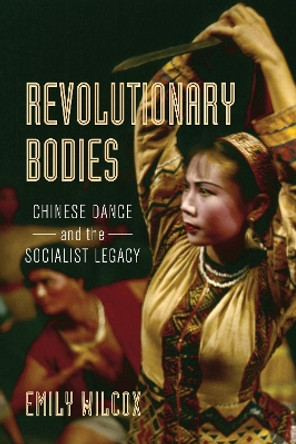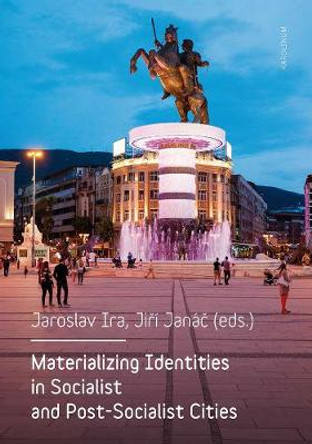Description
This book sets out to search for the 'lost' Second World in dance studies and the way it appears and reappears in today's globalized world.
About the Author
Annelies Van Assche obtained a joint doctoral degree in Art Studies and Social Sciences in 2018 for studying the working conditions of European contemporary dance artists. She is a postdoctoral researcher at the department of Art History, Musicology and Theatre Studies of Ghent University and lecturer at the Royal Conservatoire Antwerp's dance department. Her research focuses on the relation between labor and aesthetics in contemporary dance. She is author of Labor and Aesthetics in European Contemporary Dance. Dancing Precarity (2020) and a member of research group S:PAM, CoDa - European Research Network for Dance Studies and the Young Academy of Flanders. Dunja Njaradi is an associate professor at the Department of Ethnomusicology (Faculty of Music, Belgrade). She has published a monograph Backstage Economies: Labour and Masculinities in Contemporary European Dance (Chester University Press, 2014) as well as many book chapters, edited collections and monographs in her native Serbian. Her area of expertise includes dance theory, anthropology of dance and ritual performances. She is a member of CoDa - European Research Network for Dance Studies. Igor Koruga is an independent artist in contemporary dance and choreography working as author, choreographer for stage movement in theatre performances and film, pedagogue and dance dramaturge, and researcher in performing arts theory (published in journals like Maska, Walking theory, Movements, etc.). He performed in various venues in Europe (Dansens Hus, Stockholm; Tanzquartier and Leopold Museum, Vienna; HAU and Uferstudios, Berlin; Kammerspiele, Munich, Bitef Theatre, Belgrade; etc.). Member of the team for archiving performing arts practices of the independent cultural and artistic scene in the Balkan region. Winner of several national awards and international scholarships in dance. Milica Ivic holds a PhD in Theory of Arts and Media at the University of Arts in Belgrade. She is an independent researcher working in the field of contemporary dance in Serbia, interested in questions of archiving and institutionalization of contemporary dance. Also working as a dance dramaturge. She is a member of a research team for archiving contemporary dance and establishing the first online digital database of contemporary dance practices in former Yugoslavia, in collaboration with Nomad Dance Academy and Museum of Contemporary Art in Ljubljana.
Reviews
(Post)socialist Dance reveals a set of broad socio-cultural and political landscapes that constitute a self-standing field of embodied knowledges, insufficiently recognised in the Western canon thus far. Several local yet related case studies by the local artists and researchers, presented in convergence with Western scholars, illuminate a parallel epistemology of Dance that may be read alongside histories from marginalised cultures of the Global South. There is a range of insightful examples from different, more and less recent, histories of dances in socialist societies across 20th and 21st centuries. As a collection, the book reveals new modes of seeing Dance as a social entity that shifts in different moments of crises , including various wars, the breakdown of European socialisms, and grappling with the swarm of neoliberal structures. The book is inspiring in its revelations about the resilience of dance makers who adapt to the advantages and disadvantages of art production in the shifting political and economic contexts. * Dr. Tamara Tomic-Vajagic, Dance and Visual Culture scholar, University of Roehampton, UK *
Book Information
ISBN 9781350408159
Author Annelies Van Assche
Format Hardback
Page Count 240
Imprint Bloomsbury Academic
Publisher Bloomsbury Publishing PLC






